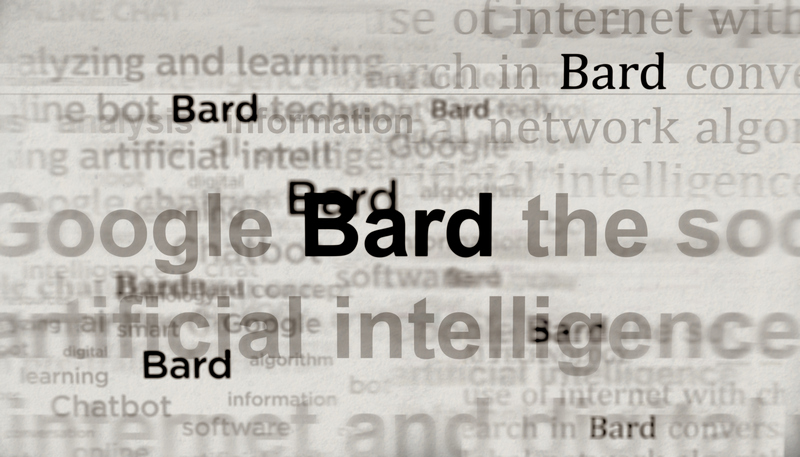One of Google’s latest AI innovations is Google Bard. Bard is an advanced natural language processing (NLP) chatbot that will revolutionize many areas of our lives, but especially how we search the internet. It will affect everything from content marketing and coding to customer support.
Artificial intelligence has come to stay, and AI chatbots are leading the revolution. Here is everything you need to know about Bard, including how it works and compares to popular AI chatbots, ChatGPT and Bing AI.
What is Google Bard?
Bard is Google’s response to OpenAI’s ChatGPT. Google has been rumored to fall behind technologically after it spent over $300 million this year to improve its machine-learning algorithm. Bard hasn’t lived up to expectations, as confirmed by experts who tried the demo. It is still an exciting conversational AI service that seeks to revolutionize how humans interact with computers.
Using LaMDA, a cutting-edge language model, Google’s Bard understands natural language and generates accurate, relevant responses. But what separates Google Bard is its ability to engage in multi-turn conversations, providing a more human-like experience.
With its fresh and precise responses, Google Bard is set to change the game for AI conversations.
Google Bard vs. ChatGPT
Google Bard and ChatGPT are two of the most popular available chatbots. While both facilitate human-machine interactions, they have different strengths and use cases.
ChatGPT is built for text functions and was trained on a massive text dataset from the internet. As a result, it is excellent at generating and summarizing text. This makes it ideal for social media or customer service interactions.
Conversely, Bard is a streamlined version of Google Search. It has been trained on a smaller dataset. Bard also focuses on surfacing relevant information for questions. Its strength lies in its ability to synthesize information into an easy-to-understand format. Thus, it is ideal for research or educational purposes.
Despite their differences, both chatbots have their place in AI-driven conversations. While many businesses currently use ChatGPT for various content marketing needs, Google Bard may soon become a go-to choice because it’s difficult to rank without Google these days; It’s reasonable to assume that Bard will be a big part of Google’s next SEO algorithm update.
Google Bard vs. Microsoft’s Bing AI (Sydney)
Google Bard provides lightning-fast response times. It has a long contextual memory, allowing it to provide more personalized responses.
Bard occasionally glitches and is criticized for copying text without citing sources. But it is an exceptional tool for those who value speed and efficiency. It can also generate multiple content drafts. This makes it an ideal choice for writing and content creation.
Conversely, Microsoft’s Bing AI diligently cites sources and offers different conversational styles. It can also generate images and perform a decent level of coding. However, it is slightly slower in response time. Sydney also has limited capabilities compared to other AI chatbots.
Regarding use cases, Google Bard is great for quick and personalized query responses. In contrast, Microsoft’s Bing AI is versatile. It can be used for research and content creation.
Can Bard Really Work?
Google Bard is an experimental chatbot. Whether the new chatbot will work well is too early to tell. But it’s crucial to weigh the prospects and drawbacks.
Bard can provide high-quality responses. This is because it draws on information from the web. Additionally, it can summarize information and provide links for further exploration.
Bard may not always provide accurate information. This is demonstrated by the factual error in its initial demo. Errors are a biproduct of any new development. There may also be concerns about the safety and privacy of using a chatbot powered by AI.
Conclusion
The future of Bard is largely related to search, which was clearly stated in the Google blog release for Bard. Google has explained that Bard will not replace web searches but aims to be an interactive tool to access knowledge about diverse topics. Are you still curious? Signup for Bard here.
